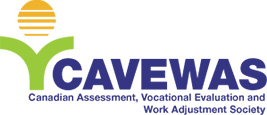Venessa Magny started off majoring in psychology, but as a self-described people person, she knew she wanted a career dealing with the public. It took until her second year of university to realize that human resources was the right fit for her, but this required a complete program shift.
So halfway through her four-year degree, Ms. Magny walked through the doors of the University of Ottawa’s Career Development Centre knowing she needed to make some drastic changes.
“When I realized that I actually wanted to pursue HR, I was definitely scared and anxious that I had already wasted two years of my life and so much money,” Ms. Magny says. She believes this fear of “wasted” time and money is common among fellow students. But she says going to career services was the necessary step.
“You have to learn to be very resourceful … or you won’t make it,” she adds.
In order to engage and guide Generation Y, many Canadian university career centres have introduced unique guidance methods in order to keep up with today’s technology-savvy students.
Students today struggle with many of the same issues past generations have tackled, such as fluctuating job markets and uncertain job prospects. But what’s new is the use of technology and the fact that some students may train for jobs that don’t even exist yet.
Several years ago, armed with the need to reconnect with its students, the Simon Fraser University career services team scrapped their typical approach to student outreach and took to the university’s busy hallways.
“We cordoned a section off like a museum display with the fancy velvet ropes and then inside that we created a really disgusting, typical student apartment scene,” describes Tony Botelho, manager of Career and Volunteer Services. Pizza boxes were strewn about an ugly rug and on the derelict couch sat a person in a green mask representing every student. A sign read, “You can’t live here forever.”
“So we used this as a way to maybe get people talking and thinking about their next steps,” says Mr. Botelho. The creative approaches are necessary, he adds, “It’s such a savvy generation in terms of advertising, so when you try to actually reach out a lot of people ignore you – particularly the ones you most want to reach.”
It’s been a few years since the student apartment advertising campaign, but the SFU career services team is continually looking for ways to talk about “possibilities” not “careers” and employs various social media and Web-based tactics to attract and help its students. Besides running Facebook pages and Twitter accounts by SFU students on behalf of career services, the team has developed several YouTube videos, including its most popular video, Wondering Where Your Degree Might Lead You.
“A lot of what we’re trying to do is this notion of helping [the students] reframe their future,” Mr. Botelho says. “Don’t feel like you have to have it all figured out because nobody does, but start thinking intentionally.”
Through these mediums, SFU students are encouraged to explore many different co-op, mentoring, job shadowing and course options in order to see what possibilities are out there.
“The idea that you could predict your future, or predict your career, one can argue has always been problematic,” he adds. “So I think we in the career field are actually catching up.”
At the University of Manitoba students seeking help from career services are encouraged by counsellors to think about the “hidden job market,” explains Gail Langlais, director of Career Services.
“If you look through the paper you might read about a new bike path that they’re thinking about developing in Winnipeg,” Ms. Langlais says, “and then you have to step back and say, well, what’s involved in the creation of that?” One might think about engineers, policy-makers, or environmental implications of the bike path and there could be potential for job opportunities, she says.
When it comes to the ever-changing job market, U of M’s strategy is to get students to become entrepreneurial in their thinking.
“We’re embracing a career development culture where individuals know it’s a lifelong process,” Ms. Langlais says. “We’re trying to educate students on the knowledge, skills and abilities to become self-managers of their career throughout their lifetime.”
For Ms. Magny, her transition from psychology to human resources was easily achieved with the guidance she received at the University of Ottawa’s Career Development Centre. She even began working at the career centre as a mentor, helping students going through similar life choices.
Ms. Magny finished at the University of Ottawa with the right prerequisites to get into Humber College’s HR diploma. Today she works in human resources in Toronto and, while she says it took a little longer and cost a little more than she originally expected, she says she couldn’t be happier about her career path.
“I may have taken a little detour, but I ended up getting to my destination.”
